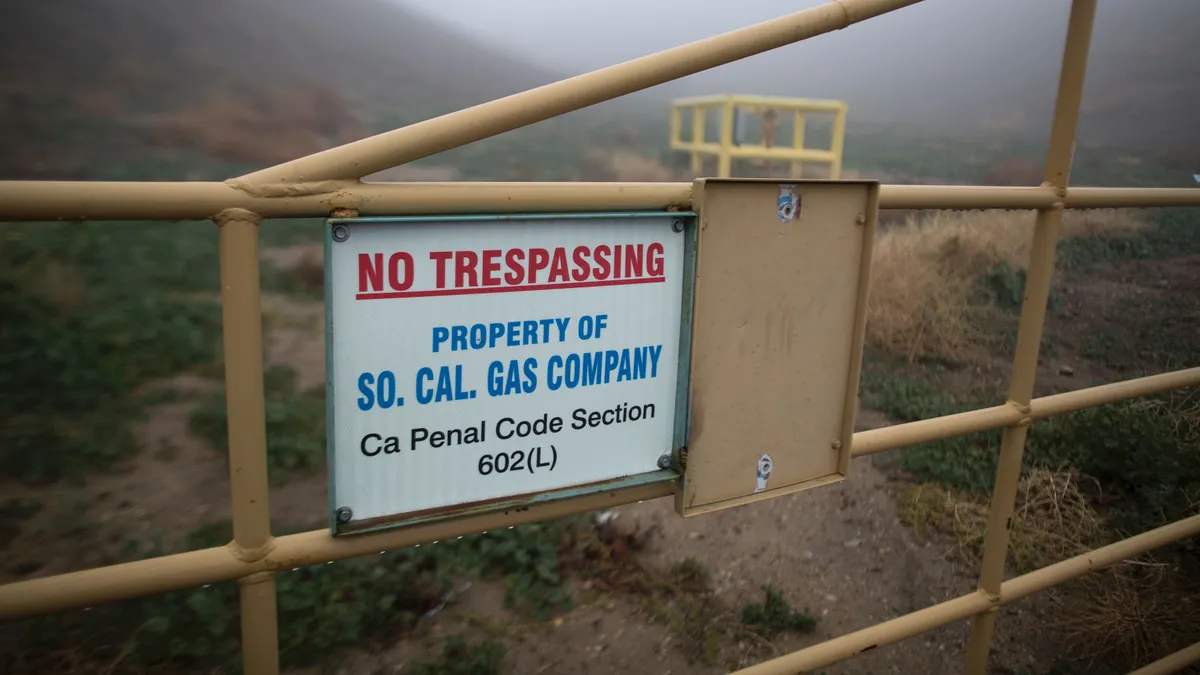Dive Brief:
- California regulators are considering allowing Southern California Gas' Aliso Canyon storage facility to resume operations more than a year after operators discovered a leak had severely depleted the facility.
- But new restrictions could limit the facility's capabilities, and SNL Energy reports it is unlikely Aliso Canyon would be able to help mitigate regional fuel shortages in the near term.
- Proposed restrictions include restricting the pipes that SoCal Gas could use to inject gas and limiting the facility to a maximum 29 billion cubic feet (Bcf). The facility has a capacity of 83 Bcf.
Dive Insight:
A year after the Aliso Canyon leak was permanently sealed, California regulators believe the facility may be ready to reopen. But they are asking for public comment beforehand while considering a host of restrictions that would limit the storage facility.
The California Public Utilities Commission will host two public meetings early next month to hear concerns, and the state's Department of Conservation’s Division of Oil, Gas, and Geothermal Resources (DOGGR) will take comment through Feb. 6.
“We want to hear the public’s thoughts on the testing and inspections, and the steps being taken to ensure public health, safety, and environmental protection,” Ken Harris, who heads up DOGGR, said in a statement. “We are responsible for ensuring that if the facility reopens, the wells are safe."
Harris said the facility has undergone "extensive inspection" and each well was tested to standards developed from three national laboratories.
The loss of Aliso Canyon had a significant impact on California's energy mix. The U.S. Energy Information Administration estimated gas generation was off about 20% during June, July and August, but was replaced largely by carbon-free sources and power imports. The state has rushed out battery storage projects to avoid energy shortages.
According to the new report on California's safety inspections, 34 wells at the facility passed a series of six tests, while 79 have been taken out of service and isolated from the gas storage field. CPUC said those wells will have one year to either pass all of the tests or be permanently plugged. One well is currently undergoing testing.
The new limits would restrict gas storage in the facility to 29 Bcf, significantly below its constructed capacity. And regulators want to require a minimum of 15.4 Bcf be kept in the facility to ensure availability during extreme weather.














